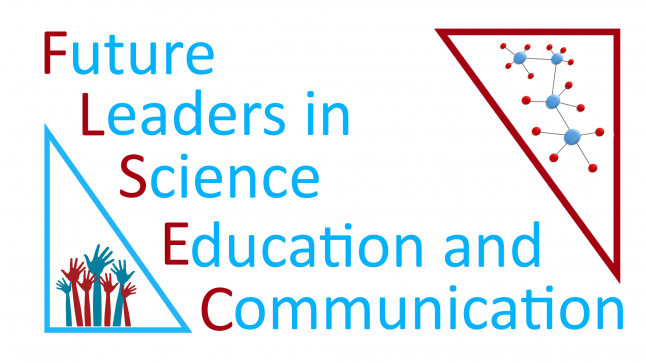The FLSEC program
The Future Leaders in Science Education and Communication (FLSEC) program develops and improves ISMMS postdocs’ teaching and lay science communication skills. The program offers both formal training and guided hands-on practice.
Program design and leadership
The FLSEC program was originally developed by Dr. Alison P. Sanders in collaboration with Drs. Eric Sweet and Ryan J. Cummings, then postdoctoral fellows at ISMMS. Dr. Sanders and colleagues identified a gap in teaching training opportunities for fellow postdocs at ISMMS and crafted a proposal for the Burroughs Wellcome Fund Career Guidance for Trainees grant program in 2015. The program proposed an intensive training in core skills for teaching and science communication needed by the postdoc community, coalescing a robust team of specialists from Mount Sinai and wider NYC. The program established hands-on K-12 teaching opportunities with the Boys & Girls Harbor afterschool program in nearby East Harlem.
The FLSEC program kicked off in Fall 2015 with 15 participants (~50% acceptance rate). Due to the demand and success among the trainees (see testimonials below), the program was offered again in subsequent years and has continued with support from the Burroughs Wellcome Fund, Postdoc Executive Committee, Office of Postdoctoral Affairs, and Department of Environmental Medicine and Public Health.
Cohort 1 (FLSEC I): Fall 2015. Co-Directors: Alison P. Sanders, Eric Sweet, and Ryan J. Cummings
Cohort 2 (FLSEC II): Summer 2016. Co-Directors: Alison P. Sanders and Rosa Viñas-Castells
Cohort 3 (FLSEC III): Spring 2017. Co-Directors: Laura Lecce and Alison P. Sanders
Cohort 4 (FLSEC IV): Fall 2017. Co-Directors: Rosa Viñas-Castells and Kathryn Bambino. Program Director: Alison P. Sanders
***APPLICATIONS NOW OPEN (Due Oct 6, links below)***
What the program includes
The program offers an 8-session course on teaching and communication followed by hands-on classroom teaching opportunities. The course topics include:
• An introduction to classroom teaching elements and instruction principles
• Evening class times to accommodate the postdoc schedule (8 classes total)
• Instruction in public speaking
• Emphasis on active learning methods to improve classic lecture-based teaching
• Mentored teaching opportunities at the graduate or 5th grade levels
• Supportive peer and mentor feedback
Trainees have the opportunity to teach K-12 students at the Boys & Girls Harbor afterschool program in East Harlem as well as undergraduate students at the SURP program at ISMMS. Upon accomplishing all of the requirements, trainees receive a certificate of completion and honorarium.
More details are provided in the Application Form and FAQ.
The FLSEC experience
Trainees’ feedback and impact on career progression
Former trainees’ satisfaction with the FLSEC experience has been overwhelmingly positive and over 20% obtained a promotion or accepted a new position within the first year of participation. Combined, over 60% of trainees from cohorts 1 through 3 have attained new positions including tenure-track faculty (12%), teaching faculty (full or part time) (19%), instructor (19%), industry scientist (8%), as well as scientific editor, technical support engineer, research assistant professor, or new postdoctoral positions.
Testimonials from former FLSEC trainees
“This was the first time that I got to experience teaching in the US. Even though I have always been fascinated by it, I was afraid to try to teach here because of language issues (English is not my native language). Now that I “broke the ice” and realized I can make it happen, I am considering teaching as a possible path for my career.”
Rosa Viñas-Castells, PhD
Postdoctoral Fellow, ISMMS
Teaching Assistant, CCNY
“[The program] has shown me that something I never thought I’d enjoy (teaching children) I actually loved and might try to find more ways to do this sort of experience again.”
Laura Lecce, PhD
Postdoctoral Fellow, ISMMS
Adjunct Assistant Professor, Stern College for Women
“[The program] provided a wealth of information on teaching and encouraged me to think creatively about putting lessons together. I received a faculty teaching focused position at a college which was helped by having this program on my resume as well as discussing teaching with other faculty during the interview using examples from concepts I learned in the course”
Anthony Esposito, PhD
Visiting Assistant Professor, Wagner College
Lecturer, Sarah Lawrence College
“Having the opportunity to teach at the Boys and Girls Harbor After School Program was one of my favorite aspects of the program. In addition to being an excellent experience to practice communicating to a very different audience, I really enjoyed that we were teaching children in an underserved neighborhood.”
Kristen Marino, PhD
Postdoctoral Fellow, ISMMS
“I really appreciate the opportunities. I have yet to seriously apply for teaching positions but I am encouraged by both graduate and 5th grade teaching experiences. I believe I matured a lot as a scientist and a science communicator.”
Anonymous Former FLSEC Trainee
“I found myself using the skills I have learned when preparing for job talks and job interviews because it helped me re-think my communication strategy in general.”
Anonymous Former FLSEC Trainee
“I feel like my teaching technique and confidence has greatly improved. Also, I feel I am more conscious when both giving and receiving feedback, which I believe will help when co-authoring papers and reviewing papers (or receiving reviews).”
Anonymous Former FLSEC Trainee
“The first cohort of this program was already very well organized, the lectures were relevant, and the practical opportunities (lesson demos, discussions, feedback, teaching opportunities) were extremely useful. I would recommend this program to any postdoc looking to have a career in academia, education or communication. Well done.”
Anonymous Former FLSEC Trainee
“I will most likely need to teach, and this program has provided me with tools that I would not have gained. Specifically in terms of education theories and teaching techniques.”
Anonymous Former FLSEC Trainee

